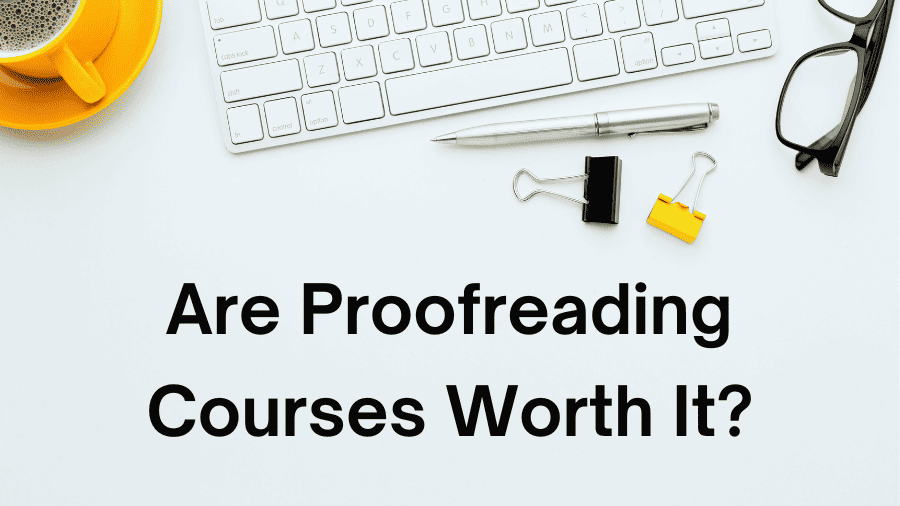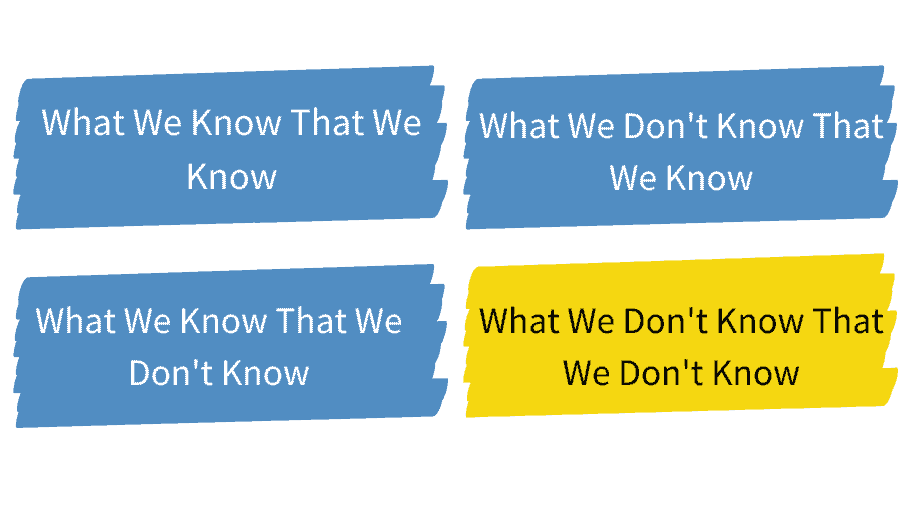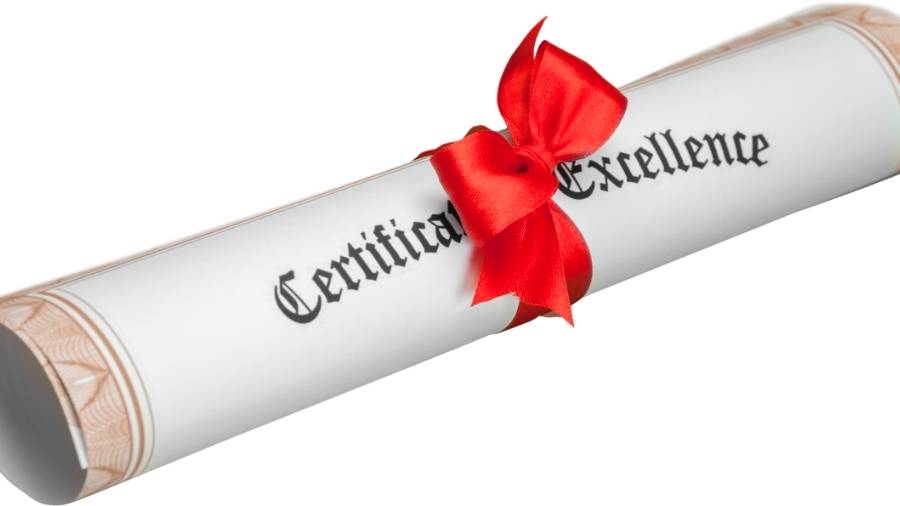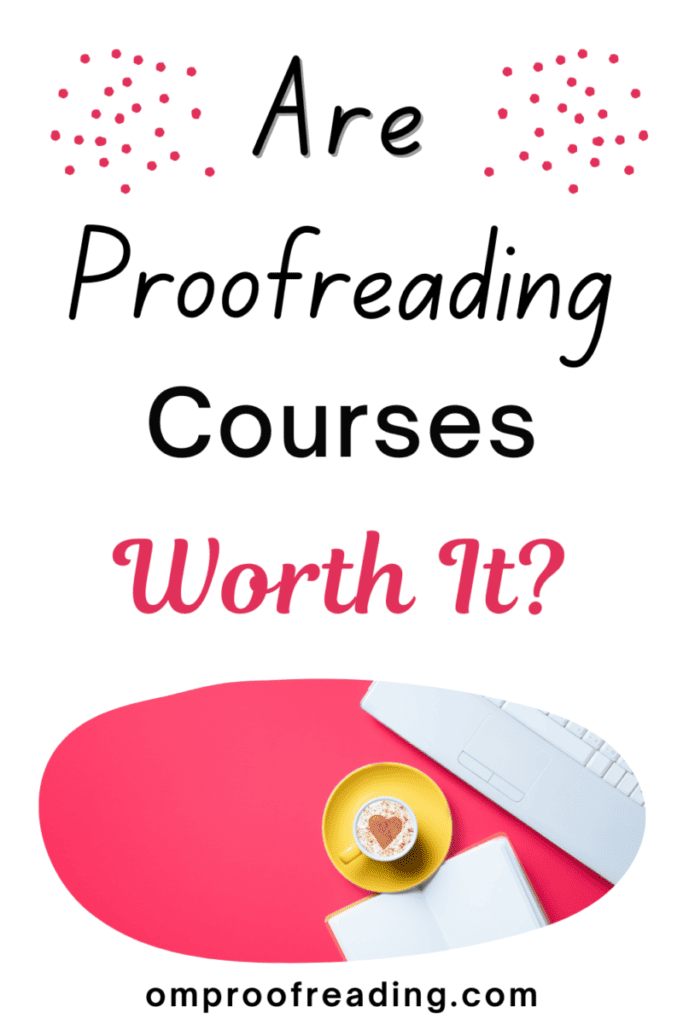This article may contain affiliate links. Please see our affiliate disclaimer in the footer menu for more information. Thank you for your support!

If you want to become a proofreader, you’ve probably wondered whether a proofreading course is worth the time and money. I took a proofreading course before proofreading professionally, which proved to be an excellent investment.
Yes, proofreading courses are worth it if you’d like to be a professional proofreader. By taking a reputable course, you’ll not only learn necessary proofreading skills but also gain confidence, attract more clients, know how to set proofreading rates, and protect your reputation.
Let’s look at many reasons why a proofreading course is a sound investment. I’ll also leave you a link to an article that discusses some of the best proofreading courses available, one of which I’ve taken. Finally, if you’re not sure how much proofreaders typically earn, I’ll provide a link to a post about this.
Proofreading Courses Are Worth It
If you’re on the fence about taking a proofreading course, let me help lead you to the solid ground with the lush green grass on the “yes” side of the fence.
Being a proofreader requires a specific set of skills. Here’s one way Merriam-Webster’s Collegiate Dictionary defines a skill: “a learned power of doing something competently; a developed aptitude or ability.”
Completing a proofreading course will help you obtain this “learned power.”
Although having a college degree or having been a grammar superstar in high school will behoove you, it won’t be enough. However, if you’ve studied copyediting in college, you probably already have the skills to be a successful proofreader.
If you’d like to know how to assess an online course to ensure it meets your needs, feel free to check out my article “11 Things You Need to Look for in an Online Course.”
More to Proofreading Than Meets the Eye

When I took a proofreading course, I was surprised to learn there was much more to being a proofreader than I thought. Many of my classmates shared this sentiment.
Had I taken the course closer to graduating from college, it would have undoubtedly required less effort. However, many years had passed.
I was so rusty with my grammar and punctuation knowledge that I decided to brush up on those skills by reading the book Painless Grammar by Rebecca Elliot, PhD.
I highly recommend it to anyone who needs a refresher. (Although the word grammar is in the title, it includes a chapter on punctuation and a chapter on commonly misused words.)
I’m so glad I read that book first because it helped me better understand The Chicago Manual of Style (CMOS)—the most commonly used style guide for general proofreaders.
Proofreaders Use Style Guides
One of the most valuable lessons I learned in my proofreading course is that proofreaders follow style guides.
Otherwise, how would we make decisions regarding grammar, punctuation, spelling, etc.?
Proofreaders of US English typically use one of these four major style guides:
- The Chicago Manual of Style
- The Associated Press Stylebook
- MLA (Modern Language Association) Handbook
- Publication Manual of the American Psychological Association
The kind of document you’re proofreading determines the style guide you use. For example, if you’re proofreading a book, you need to use CMOS; however, if you’re working on a press release, you would refer to The Associated Press Stylebook.
A proofreading course will help you become acquainted with style guides.
A class will also let you use your new proofreading skills with numerous documents to find out where you excel and which areas you need to improve.
Without comprehensive practice that mimics real-world jobs and includes answer keys or feedback, how can you measure your skills and know when you’re ready to work for clients?
Finally, investing in a proofreading course will give you confidence since you’ll know you can do your job well. Some programs provide a certificate for participating or passing the final exam. Your clients will be interested in learning you’ve received formal training.
I wrote a post about how to acquire a proofreading certificate if you’d like more information.
Solid skills and providing value to clients will help you build an excellent reputation.
Your favorable reputation will then help you scale your proofreading business and ultimately allow you to charge higher prices as you gain even more knowledge and experience.
Gain Proofreading Skills and Get Practice
What We Don’t Know That We Don’t Know
Proofreading requires more knowledge than I originally thought. I’m glad I invested in a course so I could make that knowledge mine. I learned that trying to be a proofreader without taking a class would have been a problem because I didn’t know what I didn’t know. Let’s look at the table below.

As you can see, we have knowledge that we’re aware of, and we have knowledge (somewhere in our subconscious) that we don’t even know that we have. We can also scan our brains to reveal what we know that we don’t know.
However, it’s what we don’t know that we don’t know that’s a problem. If you don’t take a course, you won’t have the opportunity to learn the knowledge you’re not yet aware you should have.
Proofreading Is a Skill
Proofreading is a skill you need to learn before you do it professionally.
Learn and then earn.
I wrote an article about the skills you need to be a proofreader. The first seven skills mentioned in this article are the following:
- A great grasp of grammar
- The capability to correct capitalization errors
- A penchant for proper punctuation
- Superb spelling skills
- Stellar style guide familiarity
- Refined research skills
- Competence with computers
These are the primary skills you’ll learn in a proofreading class. The last two skills you’ll learn in a proofreading-specific way. Finally, some programs also teach the needed business and marketing skills for those who want to freelance.
Become Familiar with Style Guides
Before taking a course, I wasn’t at all familiar with CMOS. As a general proofreader, knowing how to use this guide is essential.
Although you don’t have to memorize all the relevant rules (that would be a tall order!), you need to be aware they exist and know where to find them quickly whenever you need them.
Learning about the other common style guides and when they apply is also to your advantage. If you’re familiar with more than one guide, you can work on a broader range of documents.
Get Relevant Proofreading Practice

If you take a general proofreading course, you will (hopefully) be given a variety of texts to proofread. You’ll become comfortable with the proofreading process and learn tips about how to be effective and efficient.
Being able to practice your skills means you’ll identify your weak points so you can focus on improving them. Receiving a lot of proofreading practice was invaluable in honing my skills.
Build Confidence in Your Abilities
Gain Confidence Knowing You Have the Skills
Being confident in your proofreading prowess is priceless. With a comprehensive course, you’ll become more confident not only because of the skills you learn but also due to the time you spend practicing them.
When proofreading for a client, you don’t want to second-guess yourself over every decision.
But I’ll let you in on a little secret. Even if you take a proofreading course, you’ll probably do this in the beginning.
However, if you have the proper training, you’re likely making the right decisions; you’re just doubting yourself since you’re new to the job. And this doubt is normal—not only in proofreading but in any career.
This self-doubt that creeps up on us is so common that it has a name: impostor syndrome.
Harvard Business Review defines impostor syndrome as “a collection of feelings of inadequacy that persist despite evident success.” But you have to start somewhere, and before you know it, that confidence will be yours!
Feel Good about the Value You Give to Clients
A proofreading course will help you feel good about the value you give to your clients. You’ll be able to inspire confidence in your clients from the get-go, and you’ll be glad to know you can help them in a meaningful way.
After all, you will have put forth the effort to learn your trade well. It’s a win-win deal for both parties!
Get Clients
There Will Be Competition
Although there will always be a demand for qualified proofreaders who do good work, there will still be competition (as there is with any job). This doesn’t mean you won’t be able to obtain clients who need your services; it just means there will be other proofreaders also vying for clients.
A way to set yourself apart from the competition is to have a solid set of skills, which can be attained by taking a well-known proofreading course.
Clients Want to See Credentials

Although a degree (especially in English or journalism) is helpful, it isn’t enough. I would much rather hire someone who has completed a reputable proofreading course to proofread my work than someone who has a college degree but lacks industry-specific training. That decision is a no-brainer!
Potential clients will want to see your qualifications.
Would you invest in someone to provide a service if they weren’t qualified?
One time, I received a job on Fiverr from a client who told me that one reason he chose me was because I was knowledgeable about CMOS. He informed me that he always asks the proofreaders he hires if they’re familiar with CMOS. If they’re not, he looks elsewhere.
Finally, if you’re a well-trained proofreader, you can work with clients who have higher-than-average expectations. These clients are usually willing to pay more in exchange for outstanding service.
Soon, I’ll let you know about some reputable proofreading courses.
Protect Your Reputation
What You Don’t Know Will Show
If you expect to get paid for proofreading, you need to do a much better job than your clients could do for themselves. And although your clients won’t have the skill set of a professional proofreader (unless they are one), they’ll likely find out if you don’t know what you’re doing.
One of the first proofreading jobs I received on Fiverr was from a lady who had already hired a proofreader (from Fiverr) to polish her blog post.
Unfortunately, this woman could see that her post still contained numerous errors, so she hired me for round two.
She left a bad review for the first proofreader, who received two out of five stars. Fortunately, she gave me a positive review, five stars, and a tip. For that, I have Caitlin Pyle to thank. She’s the creator of the fantastic proofreading course I took.
You Want Clients to Come Back
The client from the last example continued hiring me whenever she needed a blog post proofread. I feel fortunate to have taken a course that allowed me to obtain the skills I need to do my job well.
In any business, you always want to earn clients’ trust so they keep coming back.
Those repeat clients are the ones who are most likely to recommend your services to someone else. Finally, they will leave glowing reviews that enable you to attain more clients and grow your business.
Recommended Proofreading Courses

The list below shows the proofreading courses I recommend and the organization or company that offers each one. All of them are online classes, so they’re available to students worldwide.
1. General Proofreading: Theory and Practice™ (offered by Proofread Anywhere in the US)
I took this course and highly recommend it. Proofread Anywhere teaches you how to proofread documents using CMOS.
The class includes a module on turning your proofreading know-how into a business and another on finding clients. It also contains a module that provides advice on using AI (Artificial Intelligence) in your proofreading work.
If you’d like to learn more about this program, I’ve written an in-depth article: “Proofread Anywhere Review: Is It Worth It? (Student Review).“
2. Becoming a Proofreader (offered by Knowadays in the UK)
This class is another excellent option. It not only teaches you how to proofread but also how to improve a document’s readability and tone.
I wrote a thorough review of Knowadays’ proofreading course if you’d like to check it out.
3. Essential Proofreading: Editorial Skills One (offered by The Publishing Training Centre in the UK)
The advantage of this program is that you have a dedicated tutor for the duration of your training.
Furthermore, The Publishing Training Centre is a respected name in the publishing industry.
4. Proofreading 1: Introduction
Proofreading 2: Headway
Proofreading 3: Progress
(offered by the Chartered Institute of Editing and Proofreading in the UK)
Note: It’s recommended that students take all three classes to complete the series.
This series of classes is expensive; however, they’re offered by a prestigious name in the publishing industry.
If budget isn’t a concern for you and you plan to apply for highly competitive proofreading positions, these courses are a solid option.
Finally, I wrote a post about how these proofreading classes compare if you’d like more information. I’ve included a couple of tables to make the comparison as straightforward as possible.
How Much Proofreaders Make
A novice proofreader can make about $12–$18 per hour. However, many variables factor into proofreading rates.
I authored an article about how much proofreaders earn if you’d like to learn more. This post discusses pay rates for employed and freelance proofreaders.
It also talks about how to determine freelance proofreading rates and mentions an important point we often overlook.
I hope this article helped you understand why proofreading courses are well worth it.
If you’re thinking about becoming a proofreader to earn extra money, feel free to check out my post “Is Proofreading a Good Side Hustle? (15 Reasons Why It Is).”
I wish you every success in pursuing your goals.
Best wishes to you!
“You’re off to great places!
– Dr. Seuss
Today is your day!
Your mountain is waiting,
So . . . get on your way!”

Recent Posts
Punctuation is important because it enables us to communicate our message clearly and effectively. Without punctuation, we wouldn’t understand how units of a sentence relate to one another or how...
Although you're probably somewhat familiar with adverbs, you may be unaware of sentence adverbs. As a trained proofreader who has studied the parts of speech, I can help you understand this unique...

